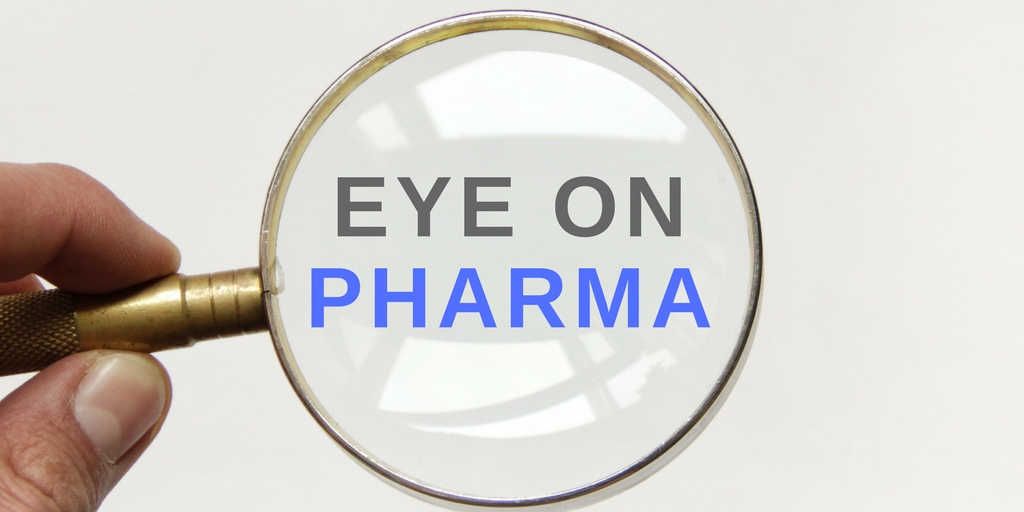- Bone Health
- Immunology
- Hematology
- Respiratory
- Dermatology
- Diabetes
- Gastroenterology
- Neurology
- Oncology
- Ophthalmology
- Rare Disease
- Rheumatology
Eye on Pharma: Adalimumab Updates; New Eylea Biosimilar Lawsuit; Canada Gains Stelara Biosimilar
Several companies make moves to further their adalimumab biosimilars, Regeneron sues Celltrion over biosimilar for Eylea (aflibercept), and Health Canada grants marketing authorization for biosimilar referencing Stelara (ustekinumab).

Several companies make moves to further their adalimumab biosimilars; Regeneron sues Celltrion over biosimilar for Eylea (aflibercept), and Health Canada grants marketing authorization for biosimilar referencing Stelara (ustekinumab).
Updates for Adalimumab Biosimilars
Multiple companies had updates on adalimumab biosimilars. First, Celltrion announced that Yuflyma (adalimumab-aaty)—a high-concentration, citrate-free biosimilar to Humira (reference adalimumab)—was added to CarePartners Specialty Pharmacy Cost Savings Programs’ formulary list.
The news means that 10 million CarePartners plan members will have access to the lowest net cost high-concentration adalimumab biosimilar on the US market. Over 80% of patients treated with Humira rely on a high-concentration, citrate-free formulation. Yuflyma launched in the United States in July 2023.
Organon also shared that it launched its high-concentration, citrate-free version of Hadlima in Canada. The launch of the new high-concentration formulation will offer patients and physicians more options for treating rheumatoid arthritis, polyarticular juvenile idiopathic arthritis, ankylosing spondylitis, psoriatic arthritis, Crohn disease, ulcerative colitis, hidradenitis suppurativa, plaque psoriasis, and uveitis.
The original low-concentration Hadlima was approved by Health Canada in May 2018, and the new formulation was approved in December 2022.
In the United States, Organon and its partner Samsung Bioepis announced that the FDA accepted a supplemental biologics license application (BLA) for an interchangeability designation for Hadlima (adalimumab-bwwd).
So far, 2 adalimumab biosimilars have interchangeability designations: Cyltezo (adalimumab-adbm) and Abrilada (adalimumab-afzb). If granted, the new label will allow for Hadlima to be dispensed to patients prescribed the reference product or another adalimumab biosimilar without a pharmacist having to get permission from a physician (subject to state laws). The aim is to make obtaining biologic prescriptions easier and expand access to biosimilars.
New Lawsuit Over Eylea Biosimilar
Regeneron, the maker of Eylea (reference aflibercept), filed a lawsuit against Celltrion over its proposed aflibercept biosimilar, according to a report from MarketScreener.
The company’s complaint was filed in the US District Court for the Northern District of West Virginia and alleges that Celltrion infringed on 38 patents under the Biologics Price Competition and Innovation Act when it filed for an abbreviated biologics license application for CT-P42 (aflibercept biosimilar).
Although there are no FDA-approved aflibercept biosimilars currently, 7 aflibercept biosimilars are in the pipeline, including Celltrion’s. These products are projected to launch sometime in 2024. Aflibercept products are used to treat age-related macular degeneration and macular edema.
Patent lawsuits are common in the US biosimilar space. If the present lawsuit resembles those for ustekinumab and adalimumab biosimilars, the parties will settle rather than go to court and the timeline for aflibercept biosimilars could be pushed back.
Health Canada Approves Stelara Biosimilar
Alvotech and JAMP Pharma announced that Health Canada granted their ustekinumab biosimilar (Jamteki) marketing authorization. Under an exclusive commercialization agreement between the companies, Alvotech will be responsible for manufacturing and JAMP Pharma, a Canadian-owned pharmaceutical organization, will be tasked with marketing of the product.
"We are very pleased to receive marketing authorization for our second biosimilar in Canada with JAMP Pharma," said Robert Wessman, chairman and CEO of Alvotech. "Strong demand for biosimilars in Canada indicates that there is a need for affordable quality biologics in the Canadian market. This is an important step for us and for our joint objective to offer broader access to more affordable healthcare."
Jamteki was approved as a 45 mg/0.5 mL prefilled syringe with passive safety for subcutaneous injection (PSF-SD) and as a 90 mg/mL PFS-SD.
It is the second biosimilar to receive marketing authorization in Canada. The approval also follows the Canadian launch of Simlandi, the companies’ biosimilar to Humira.
"The introduction of Jamteki is in line with our current biosimilar product offering and showcases JAMP Pharma's commitment to evolve in this market," said Louis Pilon, president and CEO at JAMP Pharma.
Newsletter
Where clinical, regulatory, and economic perspectives converge—sign up for Center for Biosimilars® emails to get expert insights on emerging treatment paradigms, biosimilar policy, and real-world outcomes that shape patient care.
